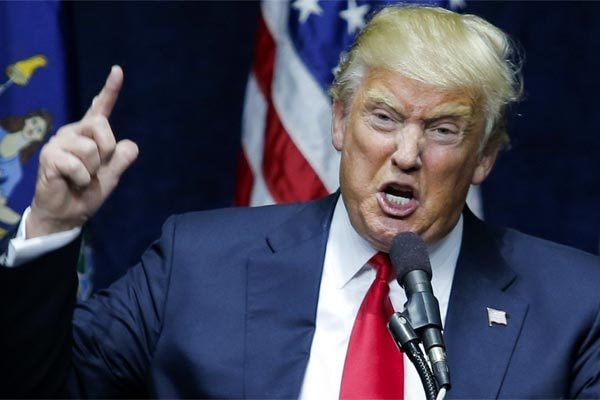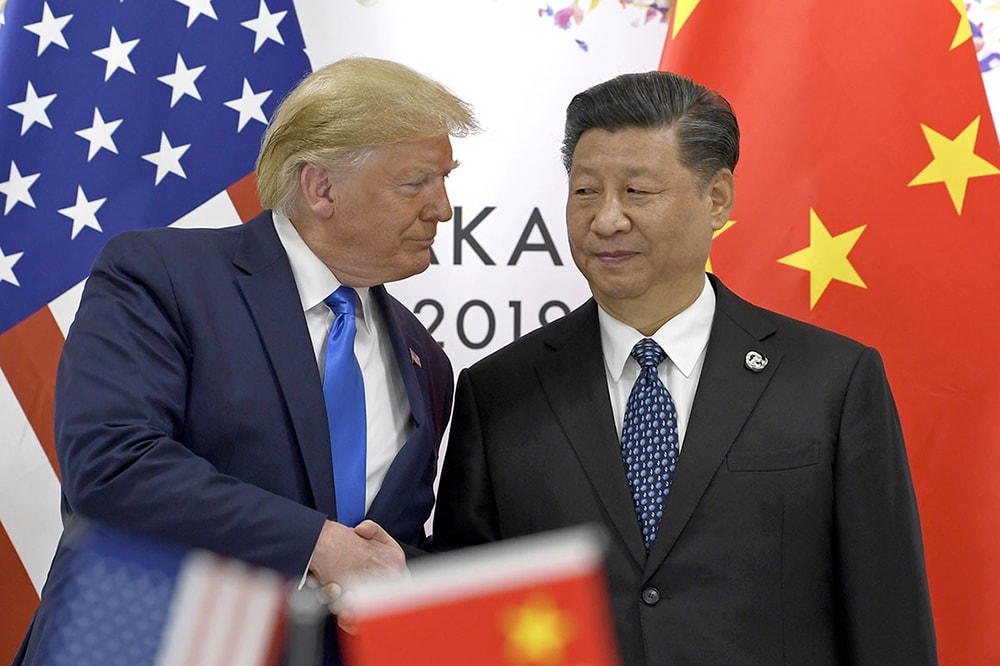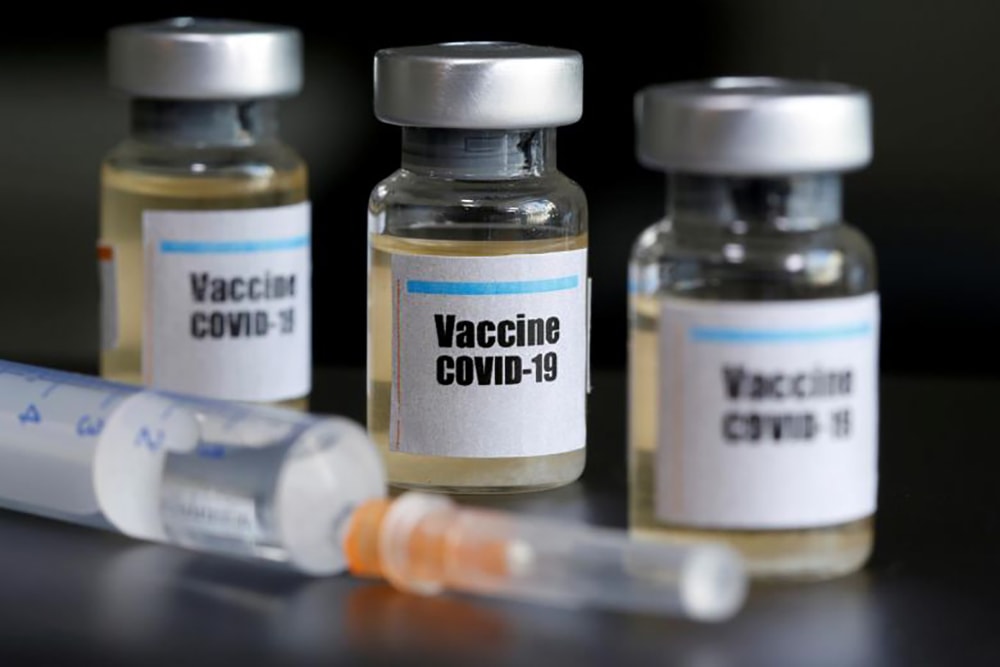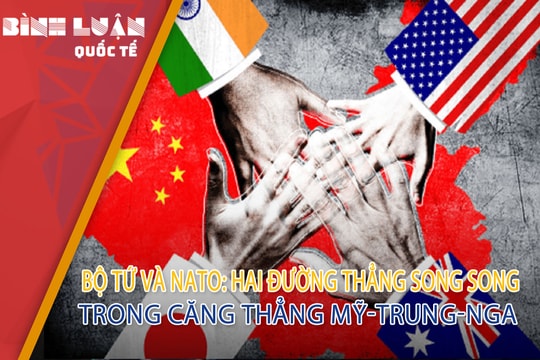US-China tensions heat up
(Baonghean) - "Increasing tariffs on China will certainly be an option!", US President Donald Trump once again "heated up" US-China tensions with tariffs as a measure to respond to China, after a series of accusations related to the Covid-19 epidemic aimed at Beijing in recent times. Mr. Trump also did not rule out the possibility of demanding compensation from China related to the damages caused by Covid-19.
Unpredictable impacts from the Covid-19 pandemic
Never before has the nightmare of the Great Depression of 1929-1930 been as evident in the United States as it is now, when the Covid-19 pandemic swept through and left a "devastated" economy. The historic disaster caused Wall Street to collapse, plunging the United States into the darkest period of its economy and then spreading to the whole world. The consequences that the United States had to deal with lasted for nearly a decade after that. By 2020, with the terrible impacts caused by the Covid-19 pandemic, a series of gloomy forecasts about the US economy were made.
 |
| Workers hand out unemployment applications to people in front of the John Kennedy Library in Hialeah, Florida on April 8. Photo: Getty |
Goldman Sachs estimates that US economic output will fall 24% in the second quarter compared to the previous year, and the unemployment rate alone could reach 9% in the coming months. Capital Economics also forecasts that US growth in the second quarter will fall 40%, unemployment up to 12%. According to recent data, the number of unemployed people in the US has increased by more than 30 million in just the past 6 weeks, growth has decreased by nearly 5% in the first 3 months of the year - the sharpest decline since 2008, large companies continuously announced negative updates plus plunging oil prices...
This gloomy reality is perhaps the “source” of the accusations, criticisms and threats that President Donald Trump has aimed at China in recent days. Accusing China of not being transparent and public about the Covid-19 pandemic, causing the world to face an unprecedented health crisis; requesting an investigation into the origin of the SARS-CoV-2 virus and China’s handling of the epidemic; and now threatening to impose tariffs and demand compensation.
Expert Brad Bechtel of the US bank Jefferies commented that it seems that as the US begins to relax social distancing measures and returns to the presidential election campaign that is gradually reaching the final stage, the Donald Trump administration will further step up the "blame" campaign on China.
 |
| President Trump accused China of not being transparent and open about the Covid-19 pandemic. Photo: Politico |
Looking back at the beginning of the year, the US and China agreed on phase 1 of a trade deal between the two sides to ease trade tensions. However, all efforts were "derailed" by the unpredictable impacts of the Covid-19 pandemic.
Will the conflict reach its peak?
There is no other time but now, trade tensions in particular and the US-China conflict in general will enter an extremely fierce phase. If just a few months ago, positive signals in the US-China trade war were calculated as a "plus point" for President Donald Trump in the race to the White House, the current context is completely different. That is why in the latest series of information, US officials said that President Trump's administration is discussing many options to retaliate against China.
In addition to imposing tariffs, the measures being considered include embargoes, not paying debts to China, and issuing new trade restrictions... In addition, it is likely that the US government is also considering stripping China of its "national immunity" - a move that allows the US government and citizens to sue Beijing for damages related to the Covid-19 epidemic.
 |
| US President Donald Trump (left) shakes hands with Chinese President Xi Jinping at the G-20 summit. Photo: AP |
Not stopping at threats, Mr. Trump himself and top officials in the US administration have continuously taken tough actions against China. For example, on May 1, President Trump issued an executive order declaring a national emergency regarding threats to the US power system, and at the same time implementing steps to protect the power grid from cyber attacks and foreign interference - referring to China.
The US government has also announced the end of funding for virus research labs in Wuhan (China), as well as reviewing recent scientific collaborations between the University of Texas (USA) and local institutions. In addition, hard-line advisers at the White House are currently lobbying the President to issue an executive order prohibiting the government pension investment fund - which is intended for federal employees - from shifting investments to Chinese companies.
While the US administration has been continuously “attacking” on many fronts, China also has its own “cards”. On the one hand, Beijing has launched a propaganda campaign that the US and Europe accuse of “smearing” the fight against the epidemic; on the other hand, it continues to make military moves that increase tensions in the East Sea, stimulating Washington’s interest. More importantly, Beijing has “passed the peak” of the Covid-19 epidemic before Washington – which also means it has begun to restart the economy earlier than the US.
 |
| US - China in the race to develop a vaccine against Covid-19. Photo: Reuters |
Not to mention, China is still controlling a large supply of medical goods and equipment such as masks, protective gear... for hospitals in the US. In case China succeeds in developing a vaccine before the US, it means that Washington will continue to be "inferior" to Beijing in this field. Also, the health of millions of Americans at that time depends on the Chinese.
In the face of this series of developments, observers commented that the world is witnessing a completely new phase in the Sino-US relationship, not simply the usual escalating conflicts. The new phase is shaped by the complexity and unpredictability of the current time. From there, the relationship between the two sides will have many points of conflict, and even the inevitable scenario of "turning back completely" due to the inability to promote negotiation mediation mechanisms. Once a compromise cannot be reached, it is clear that everyone will be the one to suffer losses in this dangerous war that has no end!


